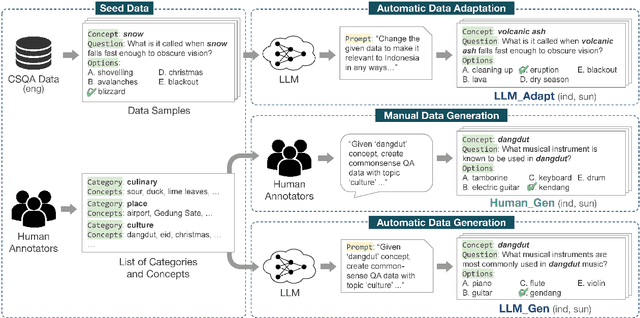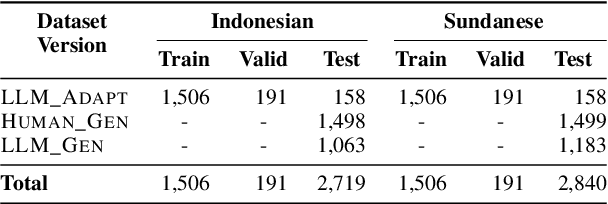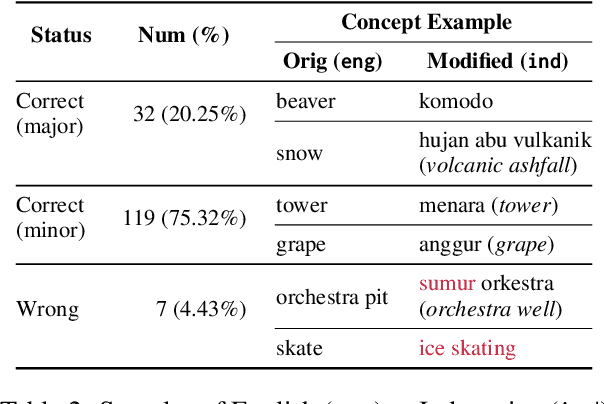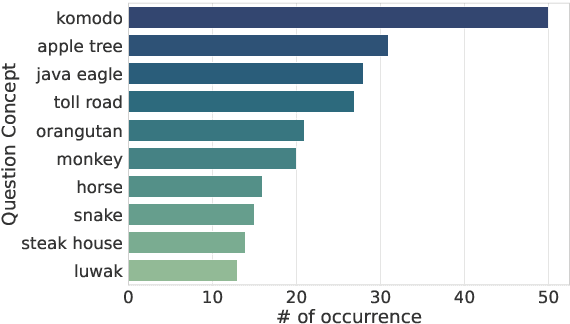Dea Adhista
Can LLM Generate Culturally Relevant Commonsense QA Data? Case Study in Indonesian and Sundanese
Feb 27, 2024



Abstract:Large Language Models (LLMs) are increasingly being used to generate synthetic data for training and evaluating models. However, it is unclear whether they can generate a good quality of question answering (QA) dataset that incorporates knowledge and cultural nuance embedded in a language, especially for low-resource languages. In this study, we investigate the effectiveness of using LLMs in generating culturally relevant commonsense QA datasets for Indonesian and Sundanese languages. To do so, we create datasets for these languages using various methods involving both LLMs and human annotators. Our experiments show that the current best-performing LLM, GPT-4 Turbo, is capable of generating questions with adequate knowledge in Indonesian but not in Sundanese, highlighting the performance discrepancy between medium- and lower-resource languages. We also benchmark various LLMs on our generated datasets and find that they perform better on the LLM-generated datasets compared to those created by humans.
NusaWrites: Constructing High-Quality Corpora for Underrepresented and Extremely Low-Resource Languages
Sep 20, 2023



Abstract:Democratizing access to natural language processing (NLP) technology is crucial, especially for underrepresented and extremely low-resource languages. Previous research has focused on developing labeled and unlabeled corpora for these languages through online scraping and document translation. While these methods have proven effective and cost-efficient, we have identified limitations in the resulting corpora, including a lack of lexical diversity and cultural relevance to local communities. To address this gap, we conduct a case study on Indonesian local languages. We compare the effectiveness of online scraping, human translation, and paragraph writing by native speakers in constructing datasets. Our findings demonstrate that datasets generated through paragraph writing by native speakers exhibit superior quality in terms of lexical diversity and cultural content. In addition, we present the \datasetname{} benchmark, encompassing 12 underrepresented and extremely low-resource languages spoken by millions of individuals in Indonesia. Our empirical experiment results using existing multilingual large language models conclude the need to extend these models to more underrepresented languages. We release the NusaWrites dataset at https://github.com/IndoNLP/nusa-writes.
 Add to Chrome
Add to Chrome Add to Firefox
Add to Firefox Add to Edge
Add to Edge